One of the biggest surprises for me when I moved to Switzerland was how quickly you could spend on food. I wasn’t eating lavishly, just grabbing lunch or a quick coffee, and yet my daily budget was slipping beyond my control. That is when it dawned on me: that in order to live well in Switzerland and not break the bank, you need to have a plan.
This article is my personal guide (real experience included) to let you know how much exactly you end up spending on food per day in Switzerland. Whether you’re planning a trip, a student trying to get by, or a brand-new resident, I’ve got you covered.
I’ll take you on a tour of what it all costs day to day, smart ways to save, common mistakes to sidestep, and some practical tips that can make a real difference. The goal? To make your life here a little easier, your wallet a little fatter, and your dinner a lot smarter.
Quick Answer: Daily Food Costs in Switzerland
Let’s get right to the point! What is the cost of food per day in Switzerland?
From my experience living here and through countless (some more successful than others) budgeting experiments (I’ve tried a dozen methods before finding what works best for me)? What I can tell you is this: how much you spend per day depends mostly on your lifestyle and your choices. Here’s a realistic division of the type of people working, living, or travelling in Switzerland:
| Lifestyle | Daily Food Cost (CHF) | Notes |
| Budget-conscious | 15–25 | Home-cooked meals, groceries from Aldi, Lidl, or Denner |
| Mid-range | 30–50 | A mix of cooking at home and eating out once a day |
| Comfort spender | 70–100+ | Eating out regularly, less price sensitivity |
Based on my experience, shopping smart and cooking for yourself can reduce costs significantly, while maintaining the quality. On the downside, if you grab a sandwich for lunch each day or eat out often, you quickly blow through CHF 50 without it feeling like much at all.
The key takeaway? Be prepared, know how to shop, and know where your money goes. In the sections below, I’m going to teach you how to do this.
 Meal-by-Meal Breakdown
Meal-by-Meal Breakdown
Breakfast in Switzerland
Breakfast in Switzerland is typically light, fast, and uncomplicated. The locals usually have a good, strong coffee with bread, butter, and jam, or a muesli with your choice. People will not go out to a fancy brunch for breakfast unless it’s the weekend.
I speak from first-hand experience when I say shopping for breakfast staples at…local supermarkets (like Migros, Coop, etc) can feed you for several, if not half a dozen, days under CHF 15. Good bread, some cheese or yoghurt, can take you far.
But if it’s on the go from a bakery, you should expect to pay CHF 5-8 for a coffee and a croissant. Chains such as Brezelkönig or BackWerk are somewhat cheaper than cafés but delicious.
Do: Buy breakfast essentials from the grocery store for better deals.
Don’t: Rely on buying breakfast out every day! It adds up fast.
Lunch in Switzerland
Lunch is the meal where spending is most likely to go in either direction. It is also where a lot of new people (myself included) overspend without really meaning to do so.
Even for the simplest lunch, a visit to a restaurant quickly runs up to CHF 20-30. That’s just for a run-of-the-mill meal at a restaurant or café, no frills. After a few months, I began going to Migros Take Away or Coop to Go, where they offer prepared salads, sandwiches, and warm meals for CHF 8-12, healthier and much less costly.
If you have access to a kitchen, you can meal prep and only have a lunch cost of CHF 3-5 per day. I generally cook a little extra dinner and take leftovers the next day. You would be surprised how much money you save doing this, even three times a week!
Do: Switch it up, go out for lunch once in a while, but count on takeaways or cooking at home to keep you in check.
Don’t: Think cheap for casual dining, even fast food (e.g., McDonald’s) will cost you CHF 13-16 per meal.
Dinner in Switzerland
Yes, dinner is generally the largest meal of the day in these parts, particularly if you are skipping or otherwise light on lunch. It’s also where the spending can really add up, or remain low, depending on the choices you make.
A sit-down meal with a drink at a restaurant in the evening might cost between CHF 40-60 per person. Even a pizza and a beer can cost you between CHF 35-45 at a mid-range place in cities like Zurich or Geneva.
But, if you’re like me and enjoy cooking, here’s the good thing! Prepare a hearty, healthy dinner for CHF 7-10 per serving if you can buy in bulk. I like this creamy mushroom pasta with salad and local cheese for dinner one night, and it costs me about CHF 6, yet it tastes like something from a restaurant.
If you are a bit frugal and select seasonal items, purchasing from discount supermarkets (like Aldi or Denner) and keeping an eye open for weekly offers, you will find that a comfortable and balanced dinner routine is possible without emptying your purse.
Do: Plan in advance, shop with a list, and cook in bulk.
Don’t: Lean on delivery apps and/or eat at restaurants all the time; that’s the fastest way to drain your budget.
Grocery Shopping Basics
The real magic in managing your food budget in Switzerland lies in grocery shopping. I discovered this the hard way when, after several weeks of eating out more than I ate in, I looked at my bank balance and was horrified; I needed to regroup.
The real truth is this: Swiss supermarkets are more expensive than those of many other countries, but there are ways to shop smart.
The two largest supermarket chains are Migros and Coop, which are both full-range chains, although Coop is slightly more expensive. For more affordable ones, I would recommend Aldi, Lidl, and Denner. The products they offer are surprisingly high-quality, and the prices are way better, sometimes as low as 30-40% cheaper than what you’d find on basic items.
Planning meals, shopping the store brands, and buying seasonal produce lets me get away with spending around CHF 70-90 a week for groceries. Swiss root vegetables in winter, or berries in summer, for example, were not only fresher but also cheaper.
Also, keep an eye out for the Aktion (sale) tags, they’re all over and may mean some big savings on meat, cheese, and even wine.
Do: Meal plan weekly and stick to your list.
Don’t: Shop hungry, trust me, you will come back with far more than you ever imagined you’d need!

Tips to Save on Food in Switzerland
Let’s face it, Switzerland is costly, but there are savvy measures you can take to trim your food bill without compromising quality or enjoyment. Living here and learning the hard way, the following are the food-saving strategies I swear by now:
My Personal Go-To Tips:
1. Shop at Discount Supermarkets
Aldi, Lidl, and Denner are your friends. Their prices are always cheaper, and the quality is good! I can often save 30-40% just by not going to Migros or Coop for basics.
2. Look for Aktion Sales
Migros and Coop both have weekly specials called Aktion. I always base meals around those deals, it’s how I score fresh salmon or organic eggs for half of what I usually pay.
3. Cook at Home & Batch Cook
Just making two extra meals a week will save you well over CHF 100 a month. I normally cook double this and freeze a few meals for when I can’t be bothered.
4. Bring Your Own Lunch
Lunch out every day is also deadly to a budget. Homemade lunch packs or eating last night’s leftovers can leave you 15CHF-20CHF better off every day.
5. Use Loyalty Cards
Migros’ Cumulus or Coop’s Supercard can give you discounts, coupons, or even cashback, worth joining up for.
Final Advice: Be deliberate about shopping when you do shop. There’s a lot to be said for a little planning in Switzerland.
Conclusion
Living (or travelling) in Switzerland does not have to mean emptying your wallet for food. With a bit of planning, smart shopping, and a couple of tricks of my own that I’ve picked up along the way, you can eat well without splurging too much. Particularly whether you’re at home whipping up easy dishes, on the go trying to eat lunch, or sneaking in a dinner out, it’s all about balance.
cost of food per day in Switzerland? I hope there are no more questions about this! This post provided real, practical insight into what to expect and how to handle the foraging of your day-to-day food here. It is always my intention to make your life in Switzerland simpler, smarter, and more fun.
Now it’s your turn: What has been the biggest surprise about food in Switzerland? Have you got a go-to local recommendation or a budget-friendly eatery? I’d love to know your experience and to share more tips, so drop a line in the comments below!
If this food cost guide was helpful, don’t miss these next must-reads:
How to Save Money Travelling in Switzerland – Practical ways I personally used to cut costs without sacrificing the experience.
What Language Is Spoken in Switzerland? – Knowing this helped me navigate menus, markets, and local spots with confidence.
Best Hotels in Interlaken – My top recommendations for where to stay in one of Switzerland’s most scenic towns.
Frequently Asked Questions
Q1. In Switzerland, how much is the daily cost of food?
If you cook at home, it will cost you between CHF 15-25 daily, and if you regularly eat out, it will be for CHF 70 to 100 or more per day.
Q2. Is it cheaper to eat in or out in Switzerland?
Not to mention that you save a LOT of money by cooking at home. If you’re eating out, you could be paying between CHF 20-50 a meal, while home-cooked meals can come down to CHF 5-10 per serving.
Q3. Which supermarkets are the cheapest for budget shopping?
If you have a budget, there are cheaper stores than Migros and Coop, such as Aldi, Lidl, and Denner.
Q4. How much does lunch cost at a Swiss restaurant?
LunchBrunch A basic menu costs between CHF 25 and CHF 35, and is served with a main dish and drink.
Q5. Is it possible to live on CHF 40 per week when buying groceries?
It’s tough, but some people make it by, cooking all meals at home and only shopping at the discount supermarkets.
Q6. Where can you eat cheaply in Switzerland?
Yes, there are places like Migros Take Away, Coop to Go, and street food stalls where you can get meals for CHF 8-15.
Q7. How expensive is a cup of coffee in Switzerland?
A small coffee usually costs 4-6 CHF and comes without free refills.




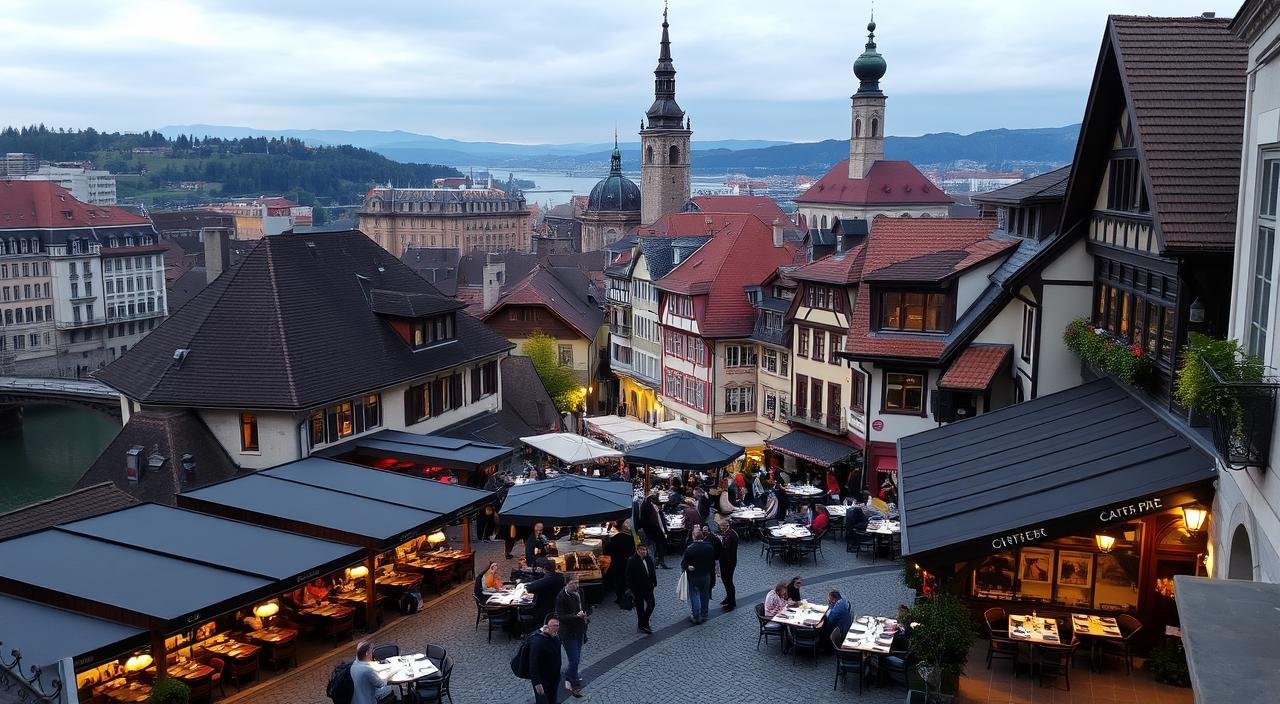
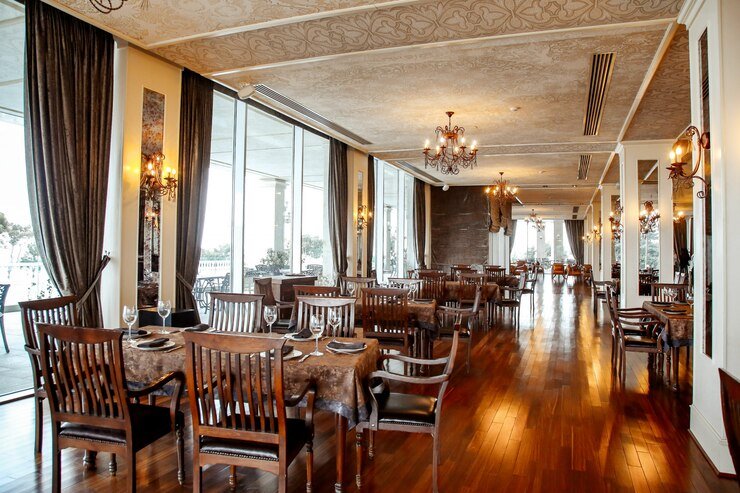
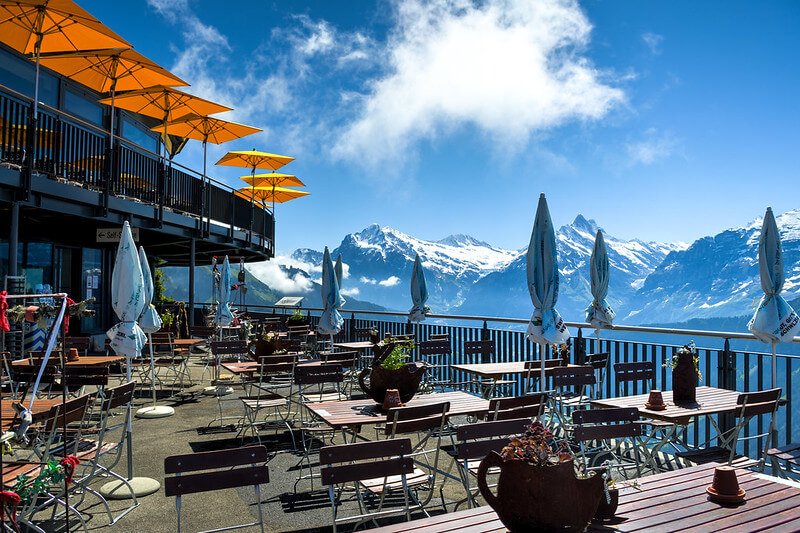

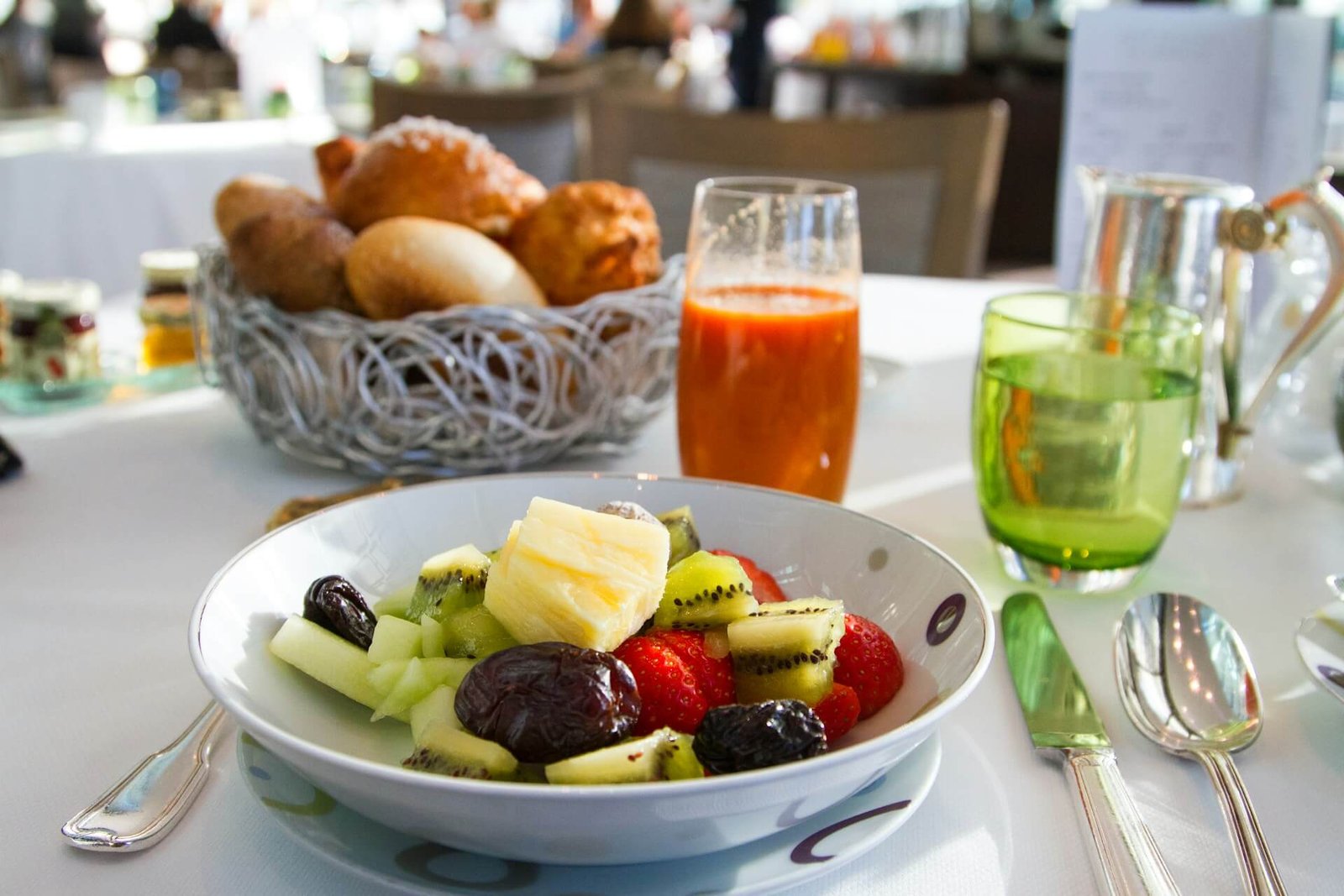

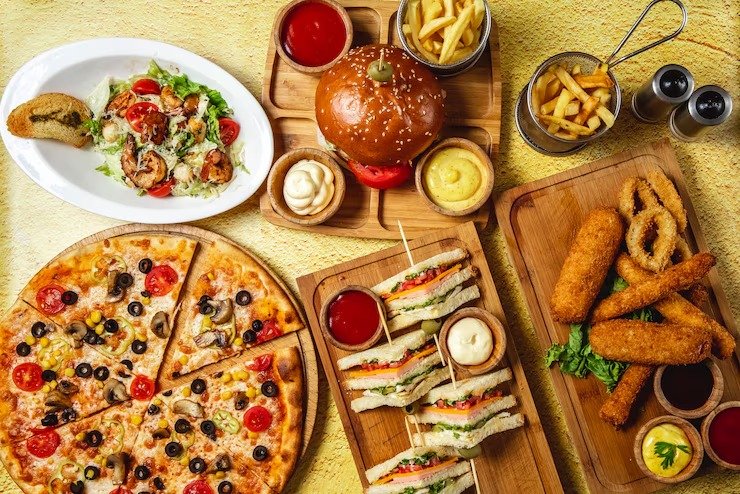



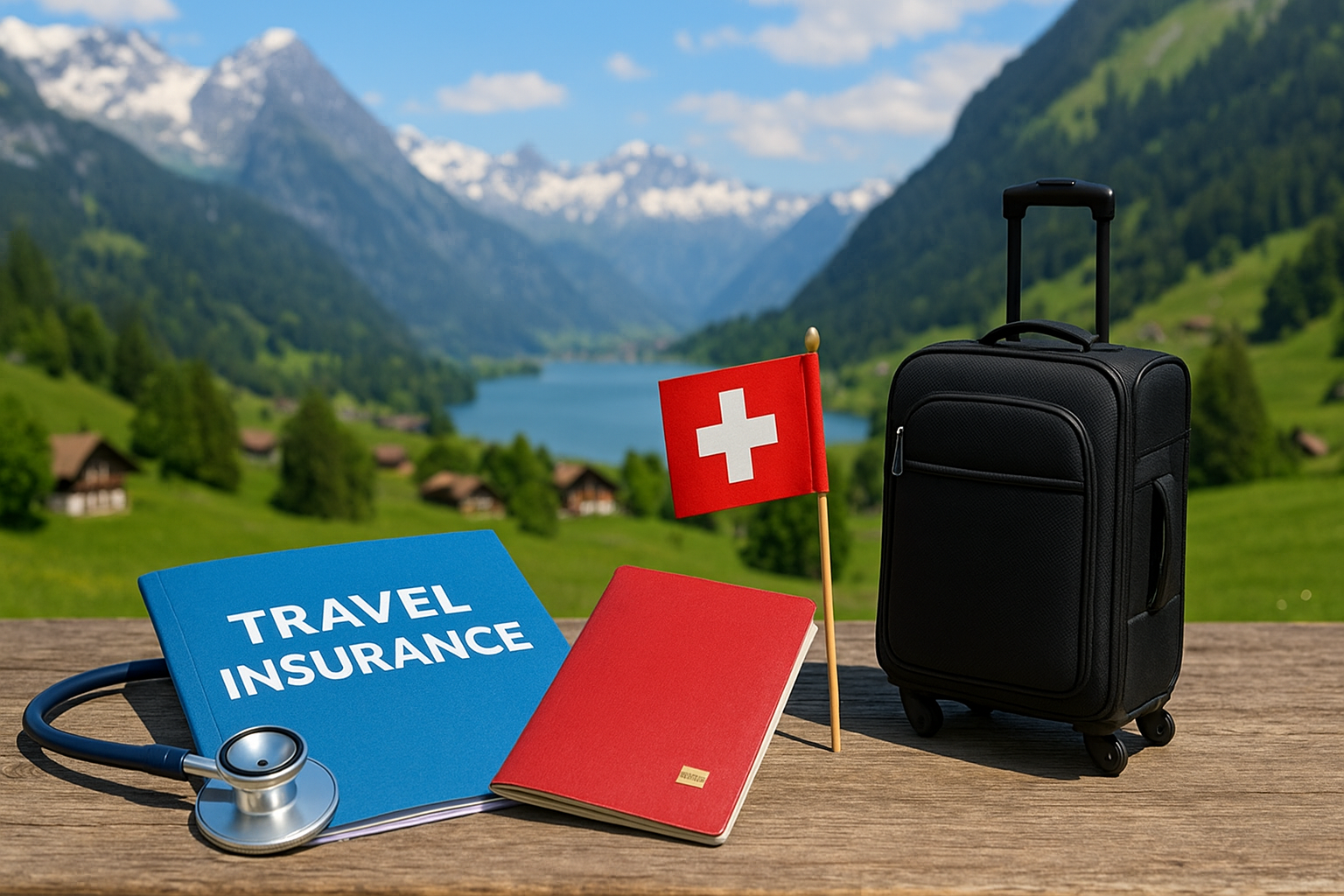
My body feels aligned and my mind feels free, thanks to 여성전용 마사지.
[…] Food in Switzerland is delicious but not cheap. Still, it’s easy to balance fine dining with more affordable, equally enjoyable options. […]
[…] of three countries, making every corner more cultural than the last. On a stroll, you can have breakfast in Switzerland, lunch in France, and dinner in Germany – all without breaking a sweat. A city that oozes through […]
[…] Cost of Food per Day in Switzerland – Get a real sense of what you’ll spend on meals, plus some local-saving tips. […]
That was exactly what I needed — thanks, 토닥이!
Even my tense emotions felt soothed at 강남여성전용마사지.
It was a truly comforting experience.